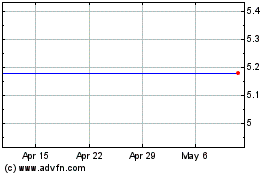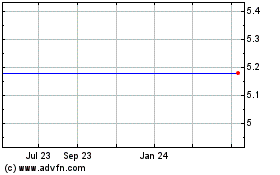UPDATE: France Cancels Shale Gas Permits On Fracking Issue
October 03 2011 - 2:13PM
Dow Jones News
The French government cancelled all three exploration permits on
shale gas fields Monday after Total SA (TOT) and U.S.-based
Schuepbach Energy LLC, which hold the rights, maintained their
intention to use a controversial technique to drill the potential
fields that was banned earlier this year.
In a joint statement, France's energy minister Eric Besson and
environmental minister Nathalie Kosciusco-Morizet said that the
three permits, which represent all of the country's potential shale
gas fields, had been cancelled after the two companies submitted a
mandatory report about their drilling techniques in which they
maintained their plans to use a process known as hydraulic
fracturing--or "fracking."
Neither representatives from Total nor Schuepbach were
immediately available to comment.
The decision represents a blow to efforts by the companies to
exploit shale gas in France. A report issued in April following a
government request said French shale oil and gas fields are
potentially some of the most promising in Europe and banning
exploration before the reserves are assessed could be detrimental
to France's economy and labor market.
The French government banned hydraulic fracturing in May this
year due to concerns about the technique's impact on the
environment, after environmental activists staged nation-wide
demonstrations to protest against the exploration and possible
development of the fields, fearing the chemicals used in the
process could pollute groundwater supplies.
Shale oil deposits are pockets of oil trapped in pores of
sedimentary rock called shale. Miners use fracking in which water,
sand and chemicals are pumped into the ground to crack open the
rock and force the oil back to the surface. The government asked
the national energy agency to cancel the permits, though they could
be reattributed later, providing the companies seeking them
formally commit not to use fracking.
French shale resources remain "largely" unknown due to a lack of
exploration, and the potential commercial viability of the fields
is also unknown because of a lack of tests, the report said.
Moreover, "the interest shown ... by major oil and gas operators
and North American companies which are specialized in extracting
shale hydrocarbons, as well as the investments they plan to make,
show the scale of the potential," said the authors of the report,
most of whom are mining engineers working for state agencies.
Of all the companies seeking to develop potential oil and gas
reserves in France, representing a total of 64 permits, only Total
and Schuepbach, which is Texas-based, maintained their will to use
fracking while Toreador Resources Corp. (TRGL), which is seeking to
explore and develop shale oil fields in France, committed not to
use fracking. Toreador's permits have therefore been
maintained.
As for other potential oil and gas fields, which are not shale,
all the permits have been maintained.
The April report suggested a European study of fracking
techniques be conducted, and also suggested the drilling of a
limited number of experimental wells to assess the impact on the
environment.
These moves should be under the strict control of a national
scientific committee, with the involvement of experts from both
France and abroad and local authorities, the report recommended. It
also said that before the environmental impact is assessed, no
fracking should be conducted at all.
"In two to three years, the acquired experience in our country
as well as in Europe and in North America will allow to make
rational decisions over the opportunity to extract oil and shale
gas in France," the report said.
-By Geraldine Amiel, Dow Jones Newswires; +33 1 40171767;
geraldine.amiel@dowjones.com
Toreador (NASDAQ:TRGL)
Historical Stock Chart
From Mar 2024 to Apr 2024

Toreador (NASDAQ:TRGL)
Historical Stock Chart
From Apr 2023 to Apr 2024
